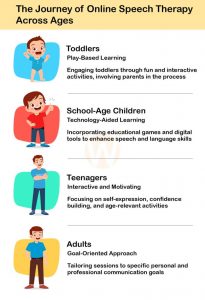The stages that a grieving person goes through
By Prapoorna M
Last Updated: November 27, 2021
Experiencing grief is as natural as any other human emotion. Grief is a kind of reaction to the loss incurred. Sobbing, wailing, whining etc. are the ways in which one vents out the grief through crying tears. Every individual has personally unique ways to experience and also to express grief.
Grief doesn’t merely involve looking back in the past to the loss occurred like missing a person that was deceased or walked away or just mourning the loss. It is also oriented towards creating a better present and future while coping with the loss. While accepting the challenges that are encountered following the loss, one tries to cope with the sudden changes, responsibilities and the loneliness that are about to cloud over.
Stages of Grief
In 1969, a Swiss-American psychiatrist named Elizabeth Kübler-Ross wrote in her book “On Death and Dying” that grief could be divided into five stages. Her observations came from years of working with terminally ill individuals. Her theory of grief was known as the Kübler-Ross model. While it was originally devised for people who were ill, these stages of grief have been adapted for other experiences with loss, too.
The five stages of grief may be the most widely known, but it’s far from the only popular stages of grief theory. The five stages of grief are denial, anger, bargaining, depression, and acceptance. Not everyone will experience all five stages, and you may not go through them in this order. Grief is different for every person. Some people may begin coping with loss in the bargaining stage and find themselves in anger or denial next.

Other people may remain for months in one of the five stages but skip other stages entirely.
Stage 1: Denial
Grief is an overwhelming emotion. It’s not unusual to respond to the intense and often sudden feelings by pretending the loss or change isn’t happening. Denying it gives time to more gradually absorb the news and begin to process it. This is a common defense mechanism and helps numb the intensity of the situation. As people move out of the denial stage, however, the emotions they have been hiding will begin to rise. They will be confronted with a lot of sorrow they have denied. That is also part of the journey of grief, but it can be difficult.
Stage 2: Anger
Where denial may be considered a coping mechanism, anger is a masking effect. Anger is hiding many of the emotions and pain that you carry. This anger may be redirected at other people, such as the person who died, partner or an old boss. Anger may be aimed at inanimate objects. Though the rational brain knows that the object of anger is not to be blamed, the feelings at that moment are too intense to feel that. Anger may mask itself in feelings like bitterness or resentment. It may not be clear-cut fury or rage. Not everyone will experience this stage, and some may linger here. As the anger subsides, however, people may begin to think more rationally about what’s happening and feel the emotions they have been pushing aside.
Stage 3: Bargaining
During grief, persons may feel vulnerable and helpless. In those moments of intense emotions, it’s not uncommon to look for ways to regain control or to want to feel that one can affect the outcome of an event. In the bargaining stage of grief, people may find themselves creating a lot of “what if” and “if only” statements.
It’s also not uncommon for religious individuals to try to make a deal or promise to God or a higher power in return for healing or relief from the grief and pain. Bargaining is a line of defense against the emotions of grief. It helps postpone the sadness, confusion, or hurt.
Stage 4: Depression
Whereas anger and bargaining can feel very “active,” depression may feel like a “quiet” stage of grief. In the early stages of loss, people may be running from the emotions, trying to stay a step ahead of them. By this point, however, they may be able to embrace and work through them in a more healthful manner. They may also choose to isolate themselves from others in order to fully cope with the loss. That doesn’t mean, however, that depression is easy or well defined. Like the other stages of grief, depression can be difficult and messy. It can feel overwhelming. People may feel foggy, heavy, and confused.
Depression may feel like the inevitable landing point of any loss. However, if people feel stuck here or can’t seem to move past this stage of grief, they must talk with a mental health expert. A therapist can help them work through this period of coping.
Stage 5: Acceptance
Acceptance is not necessarily a happy or uplifting stage of grief. It doesn’t mean people have moved past the grief or loss. It does, however, mean that they have accepted it and have come to understand what it means in their life now. People may feel very different in this stage. That’s entirely expected. They have had a major change in their life, and that upends the way they feel about many things. Look to acceptance as a way to see that there may be more good days than bad, but there may still be bad — and that’s OK.
While this is the theory postulated by Elizabeth Kübler-Ross, there are some other models proposed, in regard with the stages of grief in a person. Though different models with different stages are proposed, they are more or less the same.
The 7 stages of grief
The seven stages of grief are another popular model for explaining many complicated experiences of loss. These seven stages include:
- Shock and denial. This is a state of disbelief and numbed feelings.
- Pain and guilt. People may feel that the loss is unbearable and that they are
- making other people’s lives harder because of their feelings and needs.
- Anger and bargaining. People may lash out, telling God or a higher power that they will do anything they ask if they’ll only grant them relief from these feelings.
- Depression. This may be a period of isolation and loneliness during which you process and reflect on the loss.
- The upward turn. At this point, the stages of grief like anger and pain have died down, and people are left in a more calm and relaxed state.
- Reconstruction and working through. People can begin to put pieces of their
- life back together and carry forward.
- Acceptance and hope. This is a very gradual acceptance of the new way of life and a feeling of possibility in the future.
As an example, this may be the presentation of stages from a breakup or divorce:
- Shock and denial: “She absolutely would never do this to me. She’ll realize she’s wrong and be back here tomorrow.”
- Pain and guilt: “How could she ever do this to me? How can she be so selfish? Have I messed the things up?”
- Anger and bargaining: “If she can ever give me one more chance, I’ll be a better boyfriend. I’ll dote on her and give her everything she asks.”
- Depression: “I’ll never have another relationship. I’m doomed to fail everyone.”
- The upward turn: “This ended in a hard way. However, there could be a place in the future where I might see myself in a healthy relationship.”
- Reconstruction and working through: “I need to introspect and evaluate whatever led to end that relationship. I should learn from my mistakes.”
- Acceptance and hope: “I know that I have a lot to offer another person. I am now waiting to meet them.”
So, from the stage of encountering a loss that triggers grief, a person reaches to the stage of accepting the loss and tries to cope with the day-to-day life and the changes it has to offer. The earlier the person goes through these stages and comes to the final stage, the quicker the grief ends. Unless the grief ends, one cannot completely focus on the future. This actually varies from person to person.
Some people can manage to handle the daily chores and make decisions while coping with the grief on the other hand. The stronger the person from within, the better he can make himself ready for the next step in life. But some people are weak-hearted or might get highly affected with the loss of someone too close to them. Such individuals cannot come out of that melancholic state of grief early enough to carry on with the life. Especially when the mishap was so sudden, it hits so strong.
The friends and family members get affected much. The grief could also get triggered by incidents where none of the known persons were involved. For example, if you happened to witness a bomb blast or a natural disaster so close, that would make your mind go numb and the grievance can overwhelm you.
Need to speak to an expert for Grief counseling? Book an appointment today!!
Book your Free Consultation Today
Parent/Caregiver Info:
Client’s Details:
* Error Message









